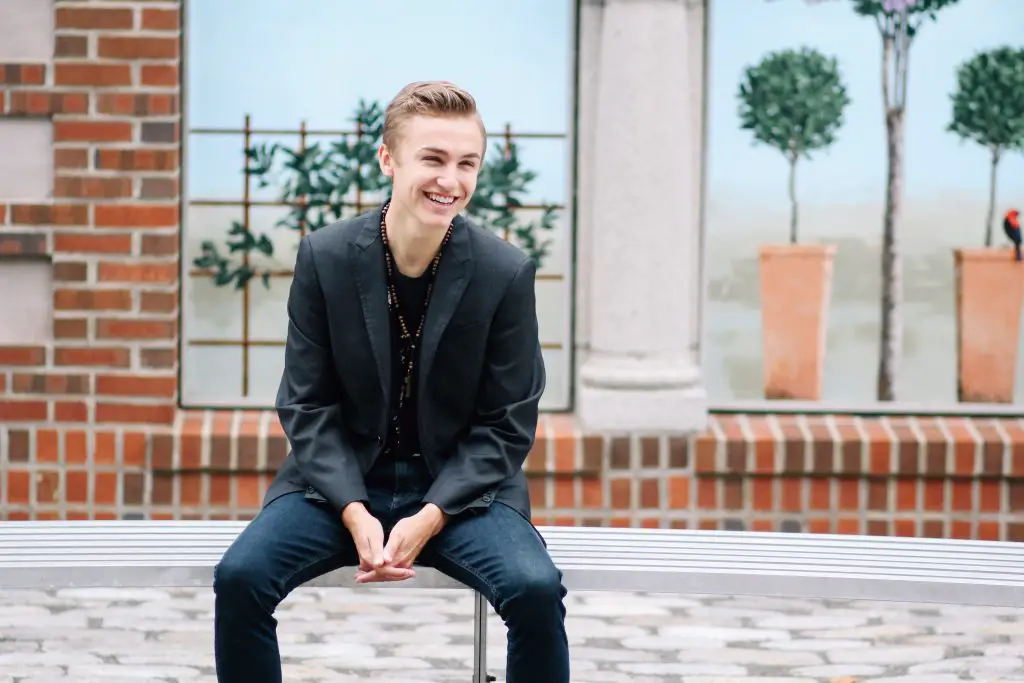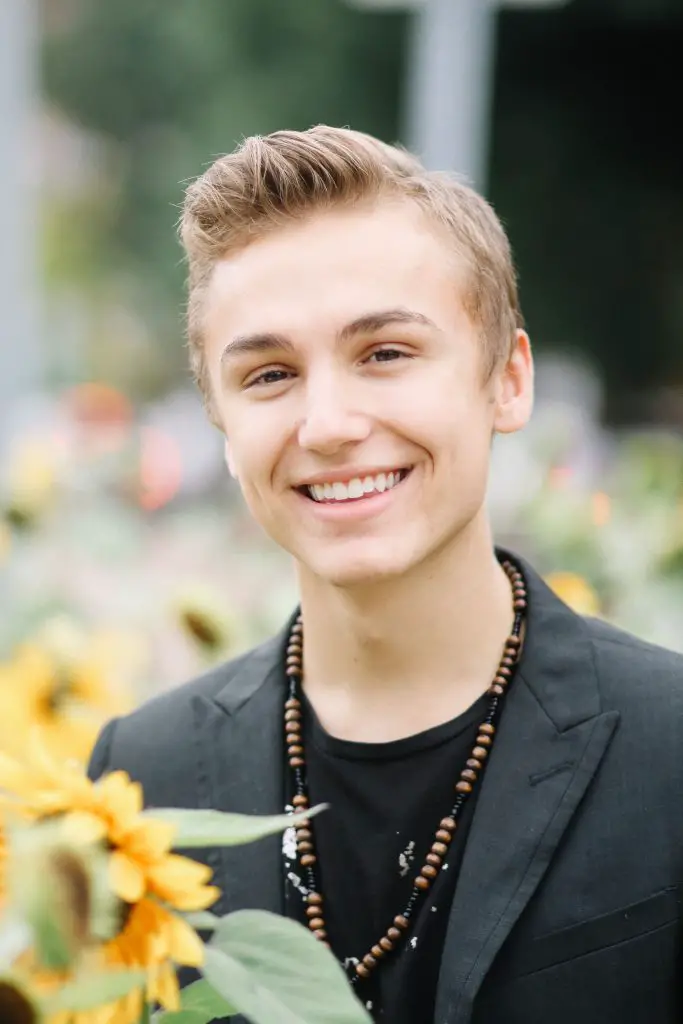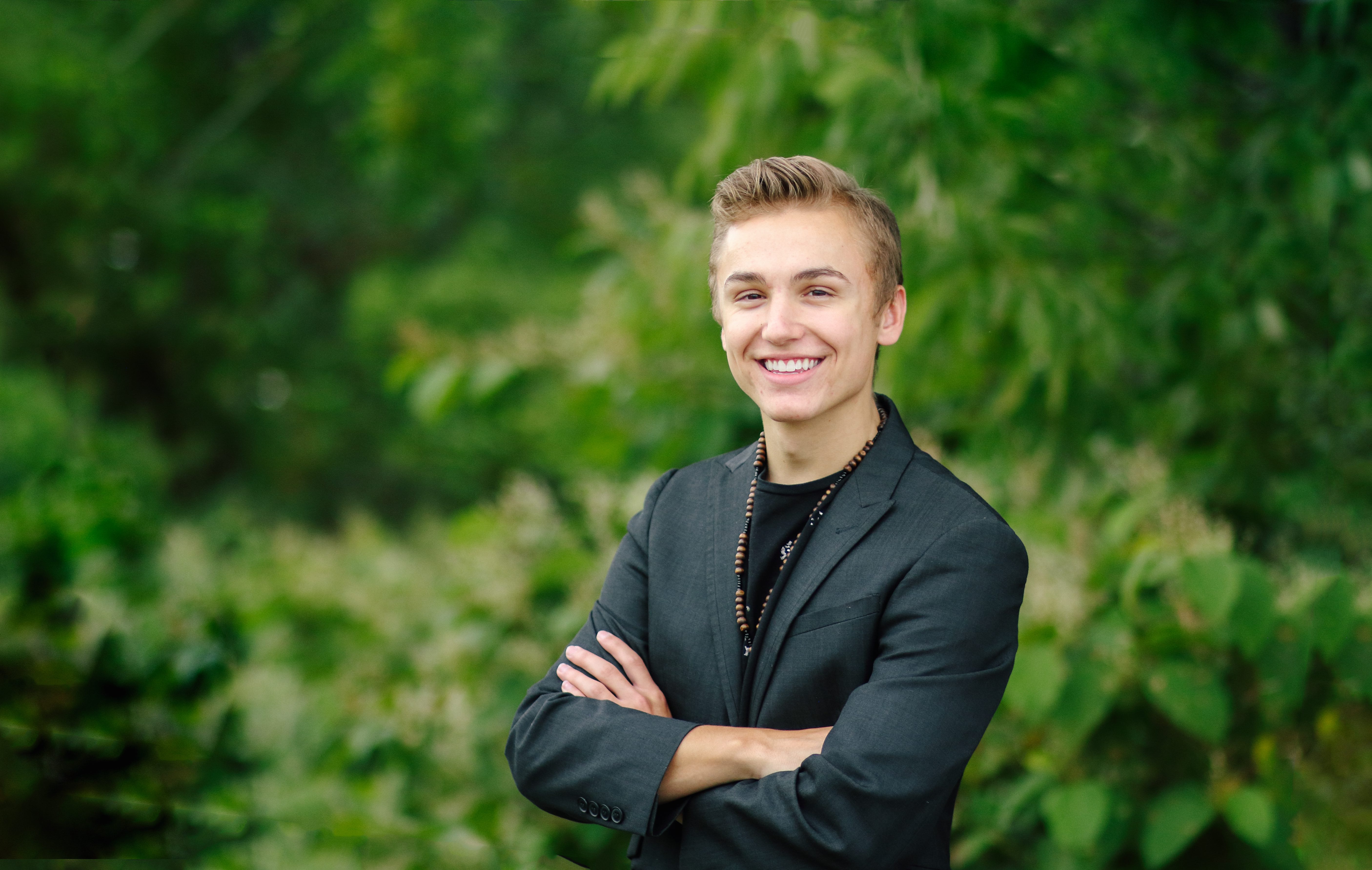J.J. Warren defies presumption. He’s a junior at Sarah Lawrence College, a school ranked the second-most secular university in the country by the Princeton Review, and yet he is well on his way to becoming a pastor in the Methodist church. He’s also gay.
As a result, Warren represents a living tension between modern secularity and religious fundamentalism, and he uses his unique perspective to spread a more positive, open message through his evangelism.
The former aspiring actor now runs the campus ministry at Sarah Lawrence, and has turned the rarely attended institution into a haven for a dynamic, distinctly contemporary dialogue about the intersection of faith and twenty-first-century life.
Warren knows and understands that many people’s experiences with Christianity have been negative, but he wants to clear the air, educate, learn and preach the word. To do so, the New York native is releasing a six-week Christian video web series, entitled “Called to Love,” and is in the process of becoming an ordained minister of the church.
I had the opportunity, before he left to Oxford for the semester to study early church history, to talk with him about his seemingly contradictory background, as well as how he plans to bring the Christian faith into the modern era.
Otis Roffman: Sarah Lawrence College is one of the most secular schools in the country. What made you to decide to attend?
J.J. Warren: I wanted to go to Sarah Lawrence because, at first, I wanted to be an actor, and since I’m from upstate New York — like way upstate, basically Canada — all of the schools I applied to were right in New York, because I wanted to be near the city. Then, the summer before I went to college, while I was working at this Christian summer camp I had grown up attending, people kept telling me, “You’re gonna make such a great pastor,” and I would say, “No, I’m going to be a famous actor!”
While I was there, one day I was just sitting beside the lake, and the tension that I had felt about what I should do and what I was passionate about finally just…went away, and I felt peace, and that’s when I said, “You know what, my faith is what I’m really passionate about, and reshaping what people think about it is what I want to do.”
At that point, Sarah Lawrence was one of the only schools in New York that I’d applied to that wasn’t a BFA program, so it kind of became my only choice. I didn’t know any statistics; I didn’t know they were the most LGBTQ friendly in the nation or that they were the second-least religious.
OR: Since you arrived on campus, you’ve done a lot of work related to faith.
JJW: I lead the campus ministry, which, as you can imagine, on the second-least religious campus in the country, is like ten people. But it used to be like three, so that’s good!
OR: What does leading the ministry in such a non-religious environment entail?
JJW: Because the campus is so secular, in most cases, people hadn’t experienced Christianity before for themselves. A lot of people had a general idea about it, which was most often a negative idea, and then there were some people that knew nothing about Christianity and had never experienced it before.
So, through the Christian Union, which is what the campus ministry is called, every week I would hold a different discussion group. I wanted it to be exciting and relevant, so we did a series called “Explore God,” and the first one asked, “Does life have a purpose?” and then others asked all these other big questions: Why do bad things happen, does God exist, what about the Bible?

They were well attended, so we filled our little room with 12 – 15 people every week, which is good. There were people who had never been before, so it was neat to have a dialogue about faith—not in a totally secular way, but in a place of learning. We really just approached the subject as we would with any other class: at a round-table discussion with fifteen of us and a professor.
OR: How did the students react to the subject material?
JJW: At first I expected people to be really distant from the idea of Christianity, to approach it negatively; to my surprise though, most often, people came at it searching honestly. That was really helpful, that people came with their walls down and treated the space as an area where everyone wants to learn.
That’s what made it successful, I think — I wasn’t pushing an agenda, they weren’t approaching it with a negative agenda and we all just were learning together.
OR: Not to focus on the negative, but is it ever frustrating to be as religious as you are and be in an environment that’s not as receptive to faith as you are?
JJW: I have two things stacked against me. First, that Christianity already has a negative reputation in society as being oppressive; and second, the Christian Union traditionally held more of a conservative view, which of course wouldn’t work on our campus.
So when I came in as someone living at the intersection of Christian and gay, even though I represent — in the fibers of my being and my identity — the exact opposite position, it was still hard for people to say Christianity is loving because of what they had heard in the past. It was really, and still is, an uphill battle to not only learn about this together, but to separate what they’ve heard from what I believe the reality is.
OR: How has identifying as gay shaped your faith, or shaped your understanding of Christianity?
JJW: I feel it can be phrased both ways: How has being gay shaped my faith, and how has faith shaped my view of being gay? Growing up in a conservative town in upstate New York in the middle of fields, my sexuality was never something I was comfortable with; being gay wasn’t normal or acceptable, and I just had believed what society said wasn’t acceptable, instead of questioning it for myself.
I had a great pastor at my home church, and a couple years before I graduated, he went on this whole campaign to make the church more inclusive, which caused some division amongst parishioners. In response, I actually wrote some letters and posted on the bulletin, but at that point I didn’t realize why.
I didn’t know why I was defending gay people, I just thought, “I’m doing this for someone else,” but, deep down, I was doing it for myself. So going to Sarah Lawrence was beautiful for me, because it was the first time that I actually got to see that there are people like me and it’s normal here, and we’re just like everyone else.

I’ve always been confident in my faith, though; for some reason, that’s always just been something that’s been there. When I was a baby, when my mom and I would walk into church, she said she could feel me automatically start kicking and dancing. I remember when I was three, I was in the bathtub, and my mom asked me, “Where does Jesus live?” expecting me to say “in the church” or something, and I said, “Right here!” and pointed to my heart. [Laughs] Now I sound like a basic Christian film.
So that’s always been there, which has created this struggle of my two core identities always being in conflict, which I never wanted to be the case. I didn’t want being gay to exist. So when I went to college, I already had faith, but I also had my sexuality affirmed for the first time.
OR: Are you saying that Sarah Lawrence helped you bring those two parts of your identity together?
JJW: I don’t think that it necessarily made the two work together, because obviously the school’s culture doesn’t help religion.
OR: No, it doesn’t.
JJW: But the confidence that I brought with my identity as a Christian, and the confidence that Sarah Lawrence gave me as a gay person…when I put them together within myself, I was able to use that to share something that people hadn’t seen before. So I guess, in a way, Sarah Lawrence affirmed my identity, and it made my sexuality feel valuable and valid.
OR: How do you reconcile your sexuality with the process of becoming a pastor? How do you expect being part of an institution like that is going to be?
JJW: I feel like Sarah Lawrence created a space for me to experience the tension between sexuality and faith in a positive way. The campus allowed me to feel confident in one and challenge the other, so I think that really has set me up for the future. In regard to becoming a pastor, I’m in the middle of the process right now.
First, your home church has to say, “Yes we see a call.” If that happens, then you have to meet with a committee of pastors and laypeople from churches in the area, and they have to say, “Yes we see a call.” I did both of those last year. Then, in April, I met with them again, and that’s when they certified me, which means I’m officially a candidate to be ordained. Now, the next step in becoming a full, ordained minister is for me to go to seminary.
Still, you see that the system, as is the case with all structures, can be corrupted by its humanity, but at least within this one, they aren’t looking at categories like sexuality, but instead at whether or not your calling is heartfelt. That’s been really neat, to see them ask me about what I feel, where I feel called, why I feel passionate and what I feel called to do — to answer those questions instead of, “Are you gay?”
Unfortunately, the stance of the church still is that a married gay person can’t be ordained as a pastor. So I’m entering into a long struggle, but we all are. Even though it’s a struggle that’s going on, it’s nice to see that we’re refocusing, and that even among the older generations, they’re seeing that what younger people want to find in Christianity is passion, authenticity and honesty, rather than, “Well you don’t fit this mold, so we can’t accept you.”
OR: You also have a video series you’re releasing. Could you tell me your plans for that?
JJW: The series is called “Called to Love.” It’s six weeks, and I’m going to be releasing them every Monday night at 7 p.m., EST, and that’s starting Monday, Sept. 18. I’m really excited.
OR: What’s your dream career within the church?
JJW: I’m kind of living it. I already get to share a new vision of Christianity and get to, in some ways, support people in their spiritual journeys, and I really enjoy that.
The next step for me, where I’ll feel fulfilled — as anti-establishment as I am, as all Sarah Lawrence hippies are — is having the church affirm that, not only am I doing this, but that they, as an ancient institution, stand by it. To be able to do the sacraments, to offer communion, baptisms, weddings, funerals and all that beautiful life stuff, that’s the dream.
You can follow J.J. Warren and find his video series on his Facebook page.

















